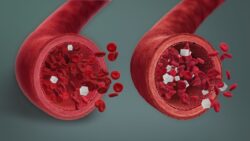Typhoid fever is a serious infectious disease caused by Salmonella Typhi bacteria, primarily affecting the gastrointestinal tract. Effective nursing care is essential for managing symptoms, preventing complications, and promoting recovery. Nurses play a critical role in assessing vital signs changes, monitoring hydration levels, administering medications, and educating patients on preventive measures. A well-structured nursing care plan ensures comprehensive management, reduces the risk of relapse, and supports patient safety. This guide outlines detailed assessment criteria, nursing interventions, and evaluation strategies specifically tailored for typhoid patients in a clinical setting.

Comprehensive Assessment of Typhoid Fever
Effective management of typhoid fever begins with a thorough patient assessment. Nurses should evaluate vital signs including temperature patterns, as fever often shows a step-ladder progression. Assessing gastrointestinal symptoms like abdominal pain, diarrhea, or constipation is crucial. Monitoring hydration status and weight changes helps prevent complications like dehydration. Nurses must also identify neurological symptoms such as confusion or lethargy, which may indicate severe infection. A detailed history of exposure to contaminated food or water is vital for accurate diagnosis. Laboratory results, including Widal test or blood cultures, provide confirmation and guide treatment decisions, enabling a targeted care plan tailored to the patient’s specific needs.
Planned Nursing Interventions
Nursing interventions for typhoid fever focus on symptom management and preventing complications. Administer prescribed antibiotic therapy on schedule and monitor for adverse reactions. Encourage adequate fluid intake to maintain hydration and support electrolyte balance. Provide a nutritionally balanced diet with easily digestible foods to promote recovery. Implement strict infection control measures such as hand hygiene and proper disposal of contaminated materials. Educate patients and families about personal hygiene practices to prevent disease transmission. Regularly assess vital signs and symptoms to track progress, and collaborate with the healthcare team to adjust the care plan as needed. Emotional support is also critical, as prolonged illness may cause anxiety and fatigue.
Evaluation and Outcome Monitoring
Evaluation is key to determining the effectiveness of the nursing care plan. Nurses should monitor fever reduction trends, improvement in appetite and nutrition, and normalization of bowel movements. Assess for hydration stability and absence of complications like intestinal bleeding or perforation. Evaluate patient understanding of infection prevention and adherence to prescribed medications. Adjust interventions based on response, documenting progress and any deviations. Successful outcomes are marked by the patient’s recovery without relapse, stable vital signs, and improved physical and emotional well-being. Regular follow-up ensures continued health maintenance and reinforces education about preventing future infections.
Patient Education and Support
Patient education is a critical aspect of managing typhoid fever. Nurses should explain the importance of completing the full course of antibiotic therapy even after symptoms subside. Educate about safe food and water practices to prevent reinfection. Encourage rest and gradual activity resumption as energy levels improve. Discuss signs of complication symptoms that require immediate medical attention. Provide reassurance and psychological support to reduce stress and promote compliance with treatment. Family involvement enhances recovery by ensuring proper home care practices and adherence to preventive measures, reducing the risk of secondary infections.
| Assessment Area | Key Observations | Interventions | Expected Outcome |
|---|---|---|---|
| Fever Monitoring | Step-ladder fever, chills | Record temperature every 4 hours, administer antipyretics | Stable body temperature within normal limits |
| Gastrointestinal Status | Diarrhea, constipation, abdominal pain | Maintain hydration, provide soft diet, monitor bowel patterns | Normalized bowel movements and symptom relief |
| Hydration | Dry mucous membranes, decreased urine output | Encourage fluids, IV therapy if needed | Maintained adequate hydration and electrolyte balance |
| Infection Control | Contact with contaminated surfaces | Educate hand hygiene, isolate when necessary | Reduced risk of transmission |
FAQs
Q1: How long does typhoid fever treatment last?
A1: Usually 7–14 days with prescribed antibiotics.
Q2: Can typhoid fever recur?
A2: Yes, if medication is not completed or hygiene is poor.
Q3: What foods are safe during recovery?
A3: Easily digestible foods like rice, soups, and fruits.
Q4: Is vaccination necessary?
A4: Yes, especially for travelers to high-risk areas.




